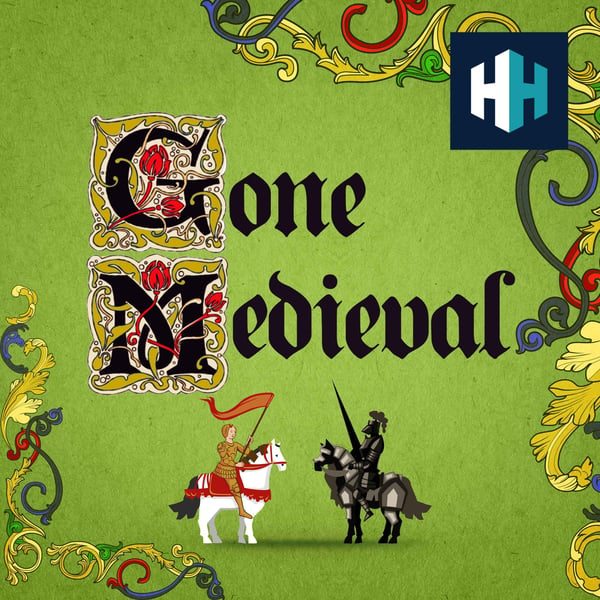Medieval Christmas
Gone Medieval
History Hit
4.6 • 2.2K Ratings
🗓️ 25 December 2021
⏱️ 36 minutes
🧾️ Download transcript
Summary
Ever wondered why we call Christmas, ‘Christmas’? And why it’s celebrated on the 25th December? Or maybe where the Christmas tree came from, the Yule log, the nativity, Father Christmas and even the advent calendar?
Well you might be surprised to learn they’re all rooted in medieval traditions. From the bringing in of evergreen trees to hold on to a symbol of new life to come, to a Greek 4th century bishop giving out presents to all the children who had been good that year.
Grab some nibbles and a drink of choice, and let our host Matt Lewis, take you on a journey through a medieval Christmas.
Don’t forget to leave us a rating and review while you're here!
For more Gone Medieval content, subscribe to our Medieval Monday newsletter here.
If you'd like to learn even more, we have hundreds of history documentaries, ad free podcasts and audiobooks at History Hit - subscribe today!
To download, go to Android or Apple store.
Music:
Agne Parthene - Pavlos Karpalos, St Sophia Greek Orthodox Cathedral, Michael Georgiou Alexandros Gkikas, Matthew Tomko and Thom Ntinas
Hosted on Acast. See acast.com/privacy for more information.
Transcript
Click on a timestamp to play from that location
| 0:00.0 | Have you ever wondered why one of Ruan Cathedral's towers is called the Tower of Butter, or what |
| 0:06.2 | animals have faced trials in courts for, or even how the black country got its name? |
| 0:12.4 | Well, you can find the answers to questions like these and hundreds more in our new book, |
| 0:18.4 | The History Hit Misscellany. It's the perfect present for any history fan. |
| 0:23.3 | It's available to buy now from your favourite bookshop or by visiting historyhit.com forward slash |
| 0:30.0 | book. Welcome to this festive episode of Gone Medieval, I'm Matt Lewis. |
| 0:38.4 | I thought today we could take a break from all the Christmas madness to look at the development |
| 0:43.4 | of the season through the Middle Ages and when some of those elements that we might recognise |
| 0:48.6 | as quintessential to Christmas first emerged. I've got a fire going, I've got a good supply of |
| 0:55.0 | mince pies, a big pot of stilton and an even bigger bottle of port and I'm ready to make my |
| 1:01.4 | full-bellied, bleary-eyed way through a medieval Christmas day. The first and most obvious |
| 1:10.0 | matter to deal with is the name of this celebration. Christmas is a slightly shortened version of |
| 1:16.2 | Christ's mass. It appears in various forms through the medieval period combining Christaise |
| 1:22.9 | from the Greek translation of the Hebrew word meaning Messiah or anointed and the Latin |
| 1:29.1 | Mesa, the celebration of the Eucharist. Xmas is another further abbreviation of the word, |
| 1:35.7 | which is often frowned upon and discouraged and you can find online style guides that will say |
| 1:40.6 | don't use Xmas, it's too informal but it does appear in middle English texts. What we recognise |
| 1:48.6 | as the letter X is in fact the Greek letter chi and it's used as an abbreviation of the Greek |
| 1:55.2 | Christos which begins with the letter chi. Anglo-Saxons referred to the period as midwinter |
| 2:03.2 | and sometimes as nativity. Old English contains references to Yule, a word and a celebration |
| 2:10.5 | that has Viking and Scandinavian heritage which covered December and January and eventually |
| 2:17.4 | became associated with Christmas. By the late 14th century the Old French word Noel derived from |
... |
Please login to see the full transcript.
Disclaimer: The podcast and artwork embedded on this page are from History Hit, and are the property of its owner and not affiliated with or endorsed by Tapesearch.
Generated transcripts are the property of History Hit and are distributed freely under the Fair Use doctrine. Transcripts generated by Tapesearch are not guaranteed to be accurate.
Copyright © Tapesearch 2025.

